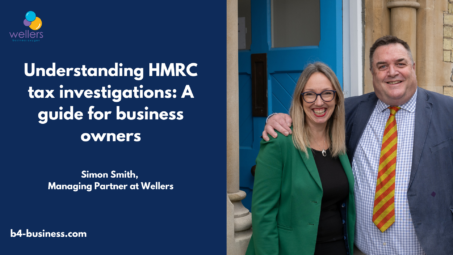
The Importance of Business Budgeting When Managing Rising Costs
Stuart Crook, Partner at Wellers, one of the UK’s leading mid-tier accountancy firms, considers why business budgeting is critical to businesses’ survival during unprecedented cost increases.
Between Brexit, Covid, and war, the past five years have been a roller coaster for business. In the past few months alone, the UK has experienced, two new Prime Ministers, the pound crashing, and inflation rates soaring.
For business owners, steadying the ship has been a challenge. And will continue to be for some time as the UK battles a recession.
This is where the importance of a business budget cannot be overlooked. Budgeting is multi-faceted, making it a critical tool in a business owner’s arsenal.
Understanding a Budget
Business budgets are financial plans. The best ones are based on historical data and are used to keep track of income and expenditure. In them, revenue goals are set, and expenditure is predicted. The process is crucial for business owners at any time, but even more so when the future is uncertain. At present, business owners need to consider many different scenarios and adjust their budgets accordingly.
Beyond turnover and expenditure, managing debt, securing investment, and reducing loans should also be a factor.
Managing a budget
Whilst a budget is a financial document, that doesn’t mean it’s the responsibility of the financial department to uphold. A budget should be handled by all directors, department leaders, heads of office, and administration staff, alongside the finance team. Having a broad range of individuals responsible for the figures will ensure that spending decisions are more carefully thought through. Planning ‘in the round’ is vital for businesses to survive (and thrive).
Creating a budget
A budget generally consists of seven elements:
- Preparation: accounts to date. A good knowledge of the past provides the best context for future planning
- Sales and revenue projections: Sales data helps to map the next business cycle and inform revenue projections which translate into sales targets
- Identifying costs: All businesses have costs no matter their size or industry. Three types of cost exist – fixed, variable, and sunk. An awareness of the different types of costs within a business is important so directors know what they can and can’t control
- Headcount planning: Salaries and wages are typically a businesses’ largest expense. So, it’s important to understand the number of employees currently within an organisation and predict how many people are needed to achieve the future targets set out in the budget
- Assessing profit margins: Budgets help businesses predict profit margins, by tracking income versus projections and expenditure. Profits demonstrate a healthy enterprise and facilitate growth, although businesses can operate perfectly fine without turning a profit
- Profit and loss statement: Profit and loss statements work by subtracting a business’s total expenses from its earnings. These figures are essential to informing future budgets
- Trends and seasonal trading: Businesses that rely on seasonal trading will experience peaks and troughs in income and expenses. As such, cash flow and headcount need to be carefully managed
Monitoring a budget
Once a budget is in place, it should be consulted regularly. Doing so allows owners to note any over or underspending, identify patterns such as cost changes, and maintain good financial health for the business.
Visit the Wellers website to find out more about business budgets.
More in Accountants

Why having an audit can boost your business
Many directors will wince at the prospect of an audit, seeing it as a necessary evil to meet statutory obligations.

FRC Proposes Major Overhaul of Auditing Standards
In a bold move, the Financial Reporting Council (FRC) has unveiled proposed changes to auditing standards that could have a major impact on the financial world, according to chartered accountants and business advisors Whitley Stimpson.

Whitley Stimpson shines as finalist for top national award
Service Charge Accountancy specialist Jonathan Walton of Whitley Stimpson has been recognised for his outstanding work in the field by being shortlisted for a prestigious property industry award.
From this author

Budget 2024 review: A bitter pill for SMEs?
Tom Biggs, Partner at Wellers, the Oxford-based small business accountants, discusses the latest Budget and the impact it will have on SMEs.

Understanding HMRC tax investigations: A guide for business owners
Simon Smith, Managing Partner at Wellers, discusses what business owners need to know about tax investigations, including whether you could be a target.

Evolution and Growth for Oxfordshire’s Wellers
Simon Smith takes the helm as Managing Partner


